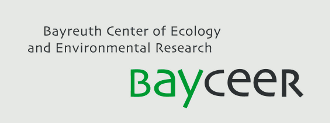Microplastic particles in limnetic ecosystems: The influence on the biota
O 1.4 in ...Our subject is exciting and we like to share our ideas with others.
02.10.2014, 11:15-11:30, H36, NW III
Plastic debris is constantly accumulating in aquatic environments and poses risk to marine and limnetic organisms. Non-floating debris accumulate in beach sediments and on the seafloor, whereas buoyant particles accumulate in the pelagic zone.
Many benthic and pelagic species are directly impacted by plastic debris as they mistake them as food items. The intestinal accumulation can cause starvation and sharp fragments may hurt the gastro-intestinal tract. Additionally it has been shown that microplastic particles are assimilated into the tissue and generate inflammatory reactions.
Further many plastic products contain additives like plasticizers, stabilization agents or colorants. Some of them are declared to be toxic, carcinogenic or endocrine disrupting and cause adverse effects.
Frequently microplastic particles bind so called “persisting organic pollutants” (POPs) from the surrounding environment. By the ingestion of plastics these POPs may reach the organisms in higher concentrations than normally found in the water. Organisms from a lower trophic level pass the particles and potentially the associated chemicals and the bounded POPs to higher trophic levels and thus facilitate the risk of bioaccumulation. However, the effects on the biota are far from being understood. Hence, we investigate the effects of microplastics and associated chemicals of polymers commonly found in freshwater ecosystems on a wide range of limnetic invertebrates from different functional levels.
Export as iCal:


